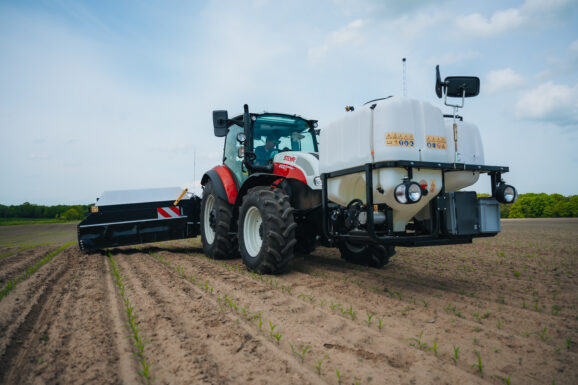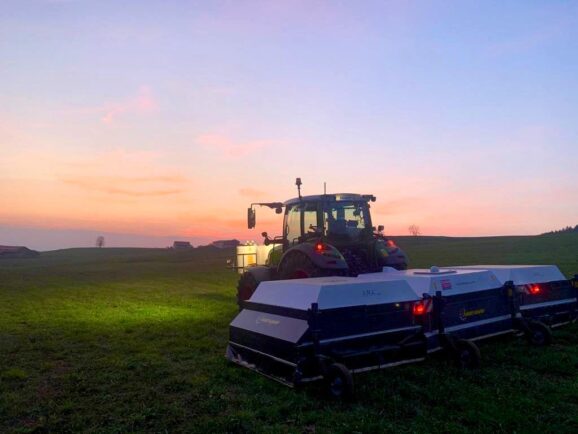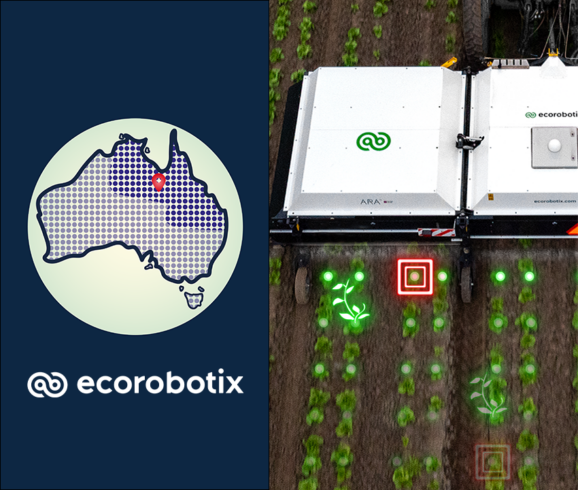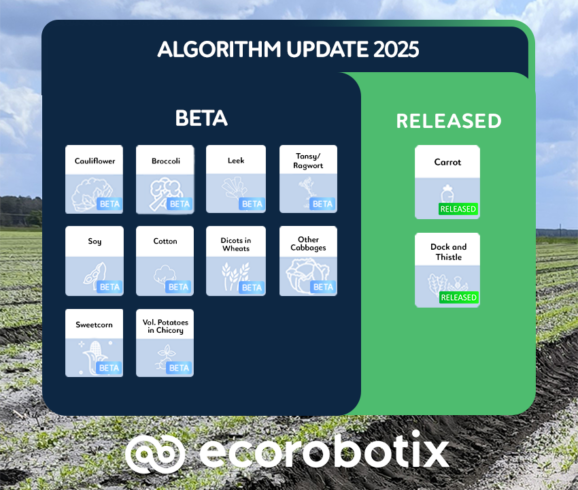The corn algorithm by Ecorobotix is still under development. It’s one of the latest projects our team is working on, just like our soy algorithm. The corn algorithm is not yet available as a full product, but it’s already used as a test version by a few farms, mainly in Switzerland.
The corn algorithm might be slightly less challenging than others we’ve developed so far. This is mainly due to a simpler crop shape and a shorter vegetative period suitable for treatment than other crops like onion.
2022 is the first year where the corn algorithm is being used at scale. By monitoring results and analysing the data and images gathered by our users, we’re refining the algorithm.
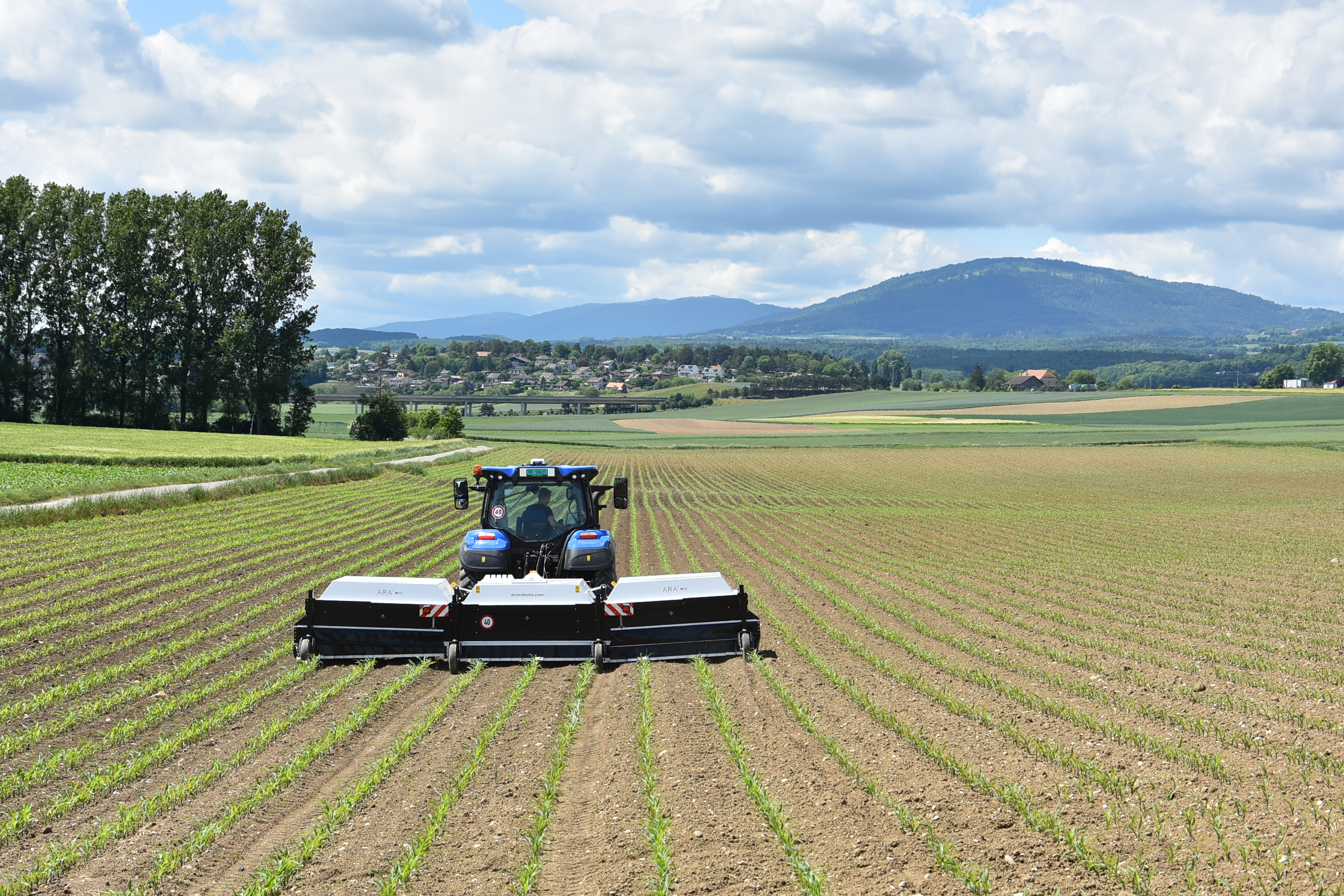
Still, first results are positive and we’ve already organised many test runs and demonstrations. In June 2022, we took part in the Field Crops and Grasslands Day, a technical event organised by the State of Vaud and Proconseil (Prométerre) in Granges-Verney (Switzerland).
The following footage shows a test run in Mathod (Switzerland). We used ARA to spray a selective herbicide in a cornfield.
Video of the test run
In the video, you can see that up to 7.5 km per hour, every weed was successfully detected by the recognition system and then sprayed. The effectiveness of both steps was visually assessed by experts following the machine.
Since we’re using a test version of the algorithm in this first year, we knew detection errors might happen. But we were happy to see they actually didn’t.
95% detection
Virtually every weed was detected by the recognition algorithm. They weren’t able to escape from ARA’s eagle eye, whatever the development stage.
If you look closely, you can see some weeds are really small, just germinated. Still, they were detected. On the other hand, no corn crop was wrongly identified as a weed.
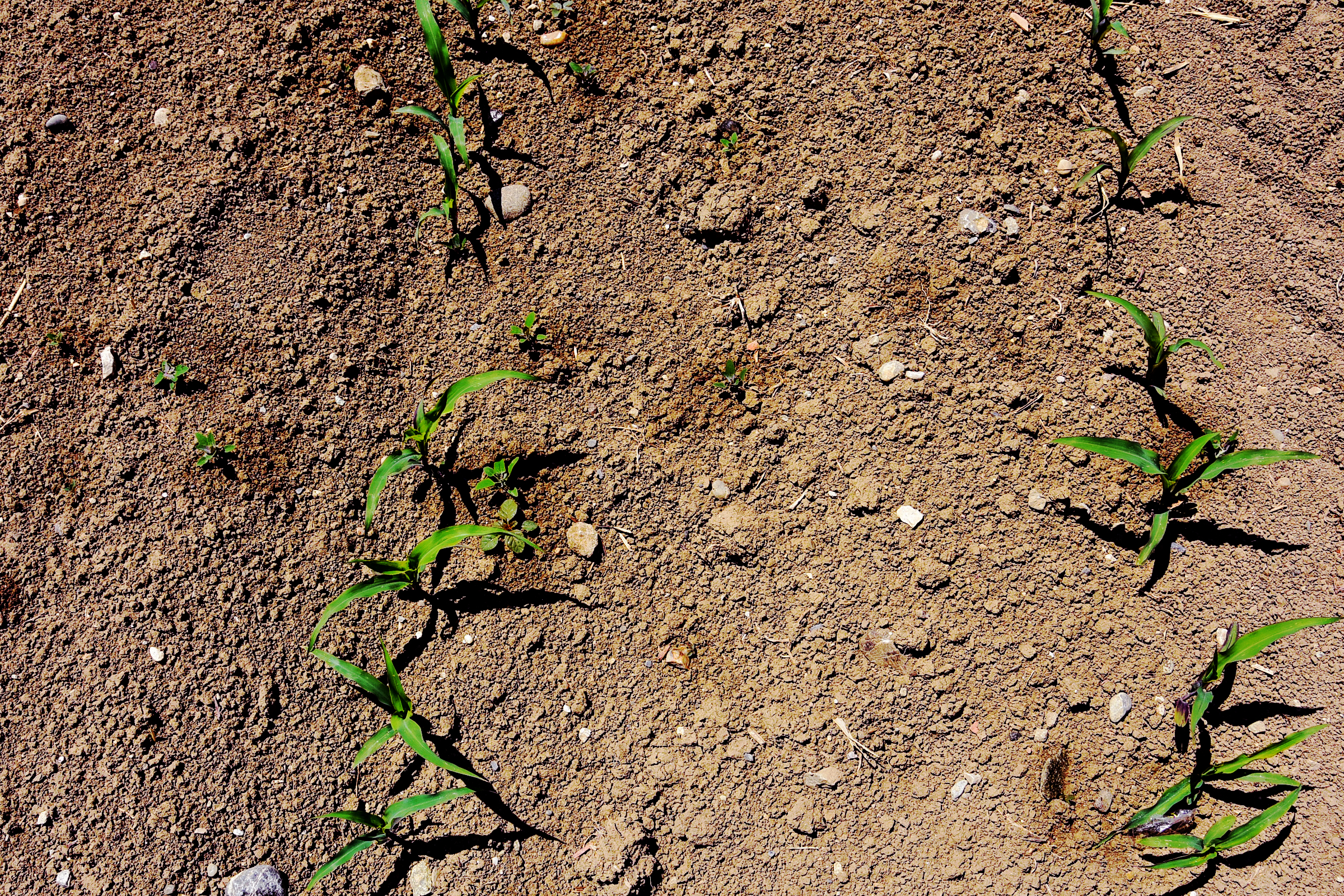
So this test achieved very good results. They make us confident we’ll be able to get the system on the market by 2023 as planned.
Ultra-precise spraying
Thanks to the number and accuracy of the nozzles, ARA is able to spray the herbicide in an ultra-localised way, up to a precision of 6 x 6 cm. When you take a closer look on the sprayed areas, you can notice dark spots looking like a QR code on the soil. This is how accurate the spraying is. It allows to target weeds that are very close to corn crops without touching them, which eventually leads to reduced harvest phytotoxicity.
So even if the farmer has no other choice than to use non- or semi-selective products, the targeted spraying of this product won’t harm the crops. Its growth won’t be affected. So on top of reducing phytotoxicity, using ARA also improves the yield of the field. And we all know situations like this will become more frequent as the range of phytosanitary products is shrinking every year.
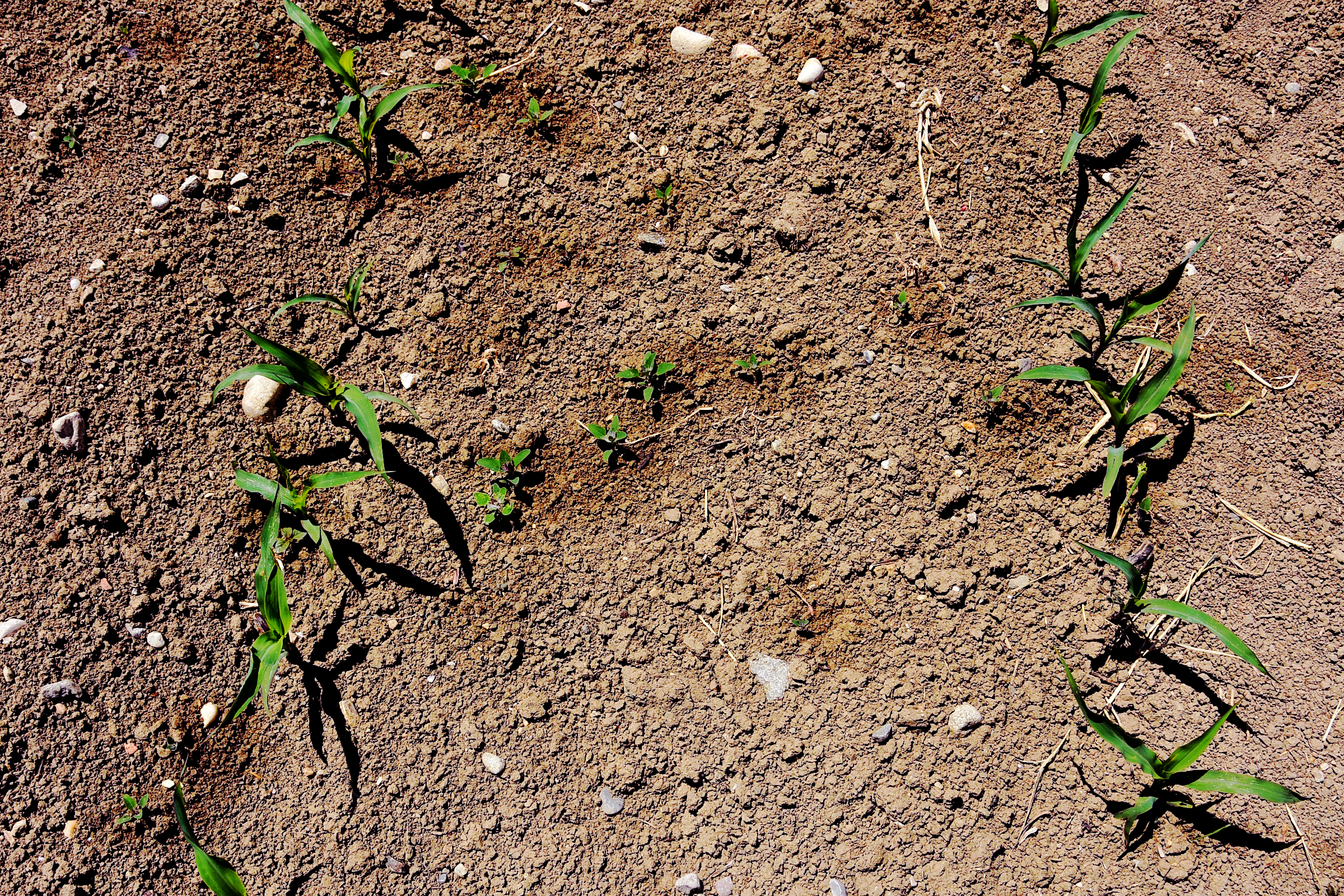
Reduced usage of phytosanitary products
Since ARA only sprays what needs to be sprayed and nothing else, it spares phytosanitary usage. On similar crops, the decrease reaches 70% to 80%.
With a conventional sprayer, a farmer typically uses around 200 litres per hectare. On the other hand, ARA only uses 40 to 50 litres to treat the same area. Of course, these are average numbers: they can vary depending on the actual weed pressure on any given field.
«With our system, there’s a spectacular decrease in the usage of plant protection product, since ARA only sprays what needs to be sprayed – and nothing else.»
Loïc Wüthrich, technical sales engineer at Ecorobotix
ARA’s efficiency in cornfields: the numbers
- Decrease in plant protection product usage: 70-80%
- Detection rate: 95%
- Treatment rate: 95%




